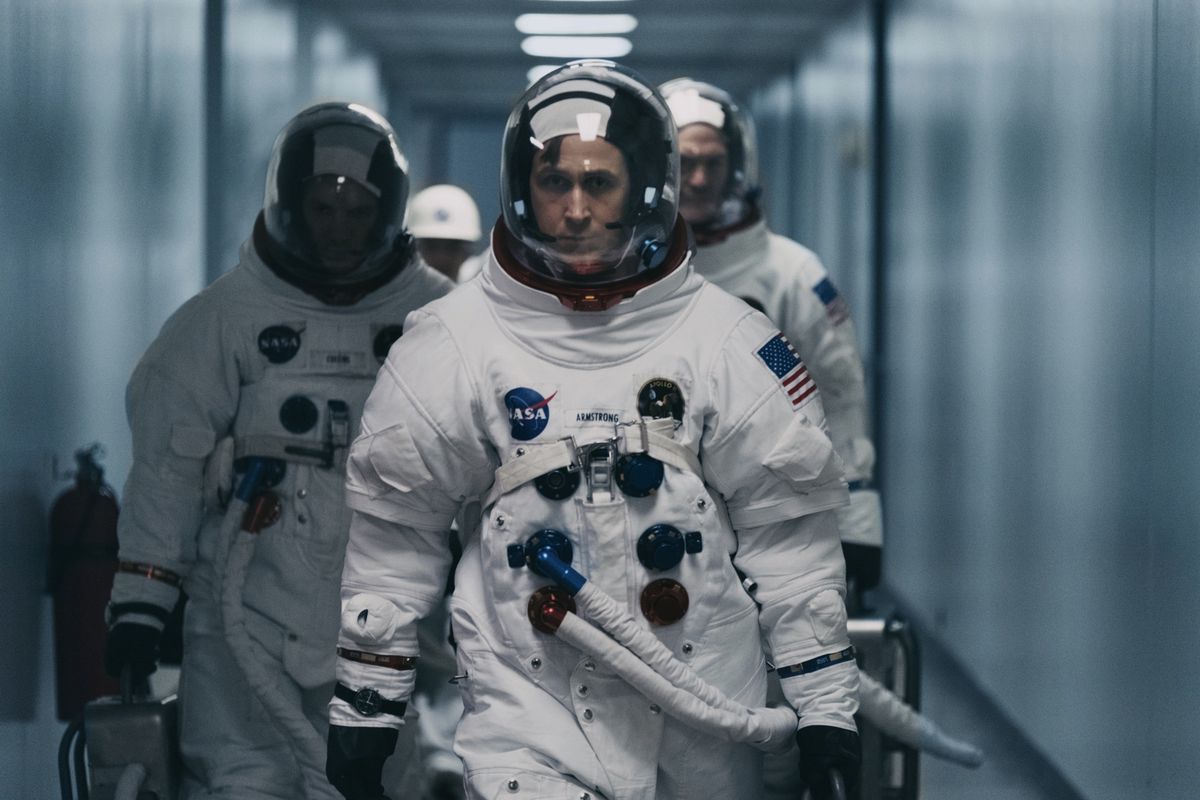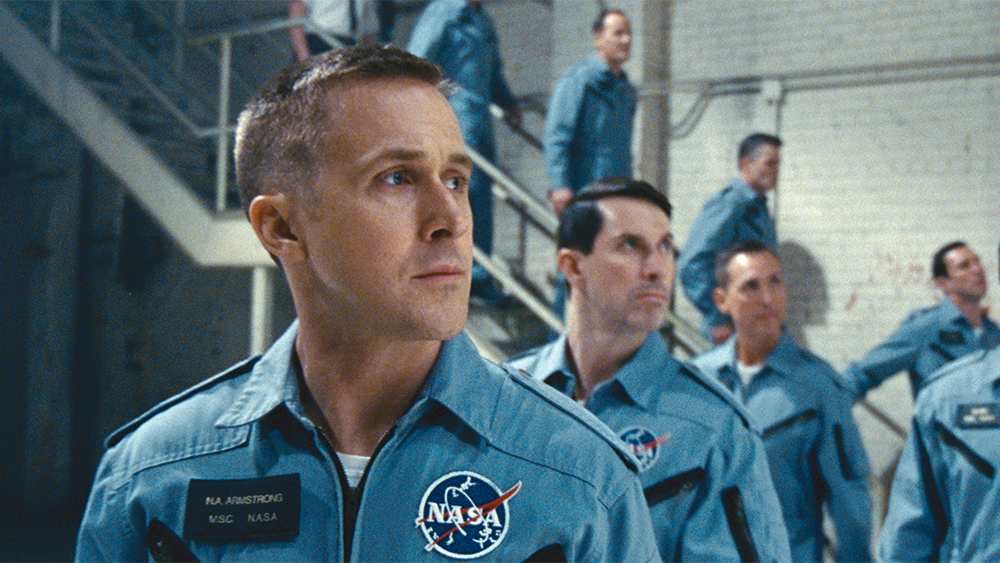After reading a few very dismissive reviews about how robotic Ryan Gosling was as the late Neil Armstrong I wondered if that accounted for the fairly disastrous box office. After the commercial and critical triumph of La La Land, all eyes were on Damien Chazelle’s next project, and with the broader scope and higher budget of humankind’s first steps on another world, it was Chazelle’s to foul up.

He didn’t do as badly as you might have heard, but I can understand why it didn’t connect with people. There’s a fine line to be danced when you want action to speak for itself and the treatment of it (and the characters) to be almost documentary-like in its detachment.
Few achieve such balance as much as (for example) Chris Nolan, but many fail. Go too far over into emotive delivery and you risk melodrama and histrionics. Too far the other way and clinical coldness can turn a viewer off, no matter how interesting the story.
Unfortunately, Chazelle seems to have painted his canvas the same way Armstrong (as the film portrays him) sees the world – no nonsense, straight-arrow, not given to highly charged expression or even a raised eyebrow. When his daughter dies of cancer in the first few scenes his face hardly changes. Similarly, when he’s asked at a press conference what kind of personal memento he’d take on Apollo 11’s historic flight if he could he deadpans that he’d take more fuel.
It’s in stark contrast to the politically astute and media friendly Buzz Aldrin (Corey Stoll), who knows how to crack wise and make the right people like him – although one wonders what the real Aldrin thought about his character behind closed doors, when he’s portrayed as a shameless careerist and kind of a prick who treads on everyone’s toes.
Armstrong isn’t interesting in playing games, making people warm to him or the political supremacy he knows the Apollo program will offer his country. In fact, Gosling is constantly so stone-faced he doesn’t seem too fussed about the scientific advancement or engineering challenge of travelling to the moon either, leaving you wondering what drives him.
There’s a scene that takes place on the moon involving a piece of his dead daughter’s jewellery which is completely imagined but gives Armstrong a kind of character motivation. But during the rest of the film he’s so emotionless and stilted it almost seems like scriptwriter Josh Singer imagined him almost as being autistic, maybe figuring it explained his reclusiveness in real life after the moon landing.

When his long-suffering wife Janet (Claire Foy) puts her foot down and insists he tells their two boys that he might never come home from space, he can barely look the two patient, but confused, kids in the eye.
Another storytelling element that doesn’t help is the camerawork, particularly early on in the film. Chazelle’s camera seems slung over the shoulder of another person in the scene, following Armstrong and his family and colleagues in a pretty slipshod – almost drunken – fashion. It’s one step away from being a Paul Greengrass shaky-cam action film, and even though Chazelle probably used it in scenes he wanted to appear to be a slice of life, it’s distracting.
The curious approach to character and photography also serve to keep you from realising what a fairly straight biopic it is of Armstrong and his adventures. We meet him in a thrilling and visceral scene where he’s test-piloting the X-15 experimental jet into the upper atmosphere and follow his home and work life up until he returns home from the lunar surface.
Despite an at-times fairly dry story and what feels like too much padding that could have been lost, it’s worthy of Armstrong and Apollo. Unlike Darren Aronofsky with Noah, Chazelle shows that he knows how to direct thrills and action when given money. With great visual effects added to the command of pace and tension he displayed in Whiplash, the scenes of launches, flights and landings are heart-in-your-throat good.
But no matter how high quality, it was a textbook example of how a media narrative can bubble up from nothing and overshadow a movie. First Man had no sooner been press screened than we all read reports online about how the planting of the American flag wasn’t included, and how it was either Chazelle’s way of asserting that the feat represented the entire human race or that he was a traitor who hated America (depending on your view).
The whole thing was probably dreamed up by an early reviewer and there was no real actual hatred, but by then it was too late – everyone with some media savvy who went to see it had the seed in their mind.







